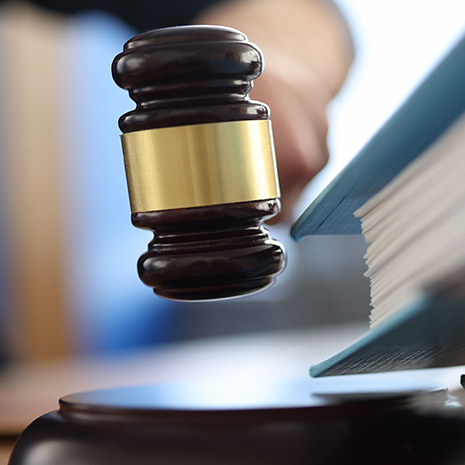Why Select Federal Appeal Lawyers: Proven Techniques for Successful Appeals
Why Select Federal Appeal Lawyers: Proven Techniques for Successful Appeals
Blog Article
Demystifying the Refine of Federal Appeals: What You Need to Know
Navigating the elaborate realm of government appeals can typically feel like passing through undiscovered waters for those not familiar with the process. Understanding the subtleties of appellate court territory, the ins and outs of filing a notice of appeal, presenting an engaging brief, and making a persuasive dental argument are essential components that can dramatically affect the result of a situation. By unraveling the layers of intricacy surrounding federal allures, individuals can get a clearer insight into the mechanisms that control this critical point of the legal system.
Understanding Federal Appeals Process
Exploring the intricate world of the government appeals process reveals a organized and methodical journey through the judicial system. Federal appeals serve as an essential device for reviewing decisions made by lower courts. Comprehending this procedure is necessary for anyone associated with legal procedures at the federal level.
The process typically starts with a celebration dissatisfied with a reduced court's ruling filing a notice of charm. This causes a testimonial by a higher court, where a panel of judges evaluates the lawful debates presented by both celebrations. Briefs laying out the legal thinking behind each event's setting are sent, and oral debates may be heard to clarify complex concerns.
The appellate court's decision is based on a complete evaluation of the reduced court's procedures and the disagreements presented. When the appellate court gets to a decision, it can affirm, reverse, remand, or change the lower court's judgment, giving clearness and finality to the lawful dispute.
Appellate Court Jurisdiction Clarified
Appellate court jurisdiction refers to the scope of instances that a certain appellate court has the power to make a decision and evaluate upon. Unlike test courts that listen to cases for the first time, appellate courts are limited to evaluating choices made by reduced courts.
Appellate courts have jurisdiction over details kinds of cases, usually those involving lawful errors, step-by-step problems, or questions of law as opposed to factual disagreements. The jurisdiction of appellate courts is normally described in statutes and legislations that regulate the court system. Comprehending appellate court jurisdiction is vital for celebrations included in the allures process as it figures out whether a case is qualified for testimonial and the extent to which the appellate court can interfere in the lower court's decision.
Declaring a Notice of Allure
The first action in commencing the federal appeals process involves filing a Notification of Charm with the appropriate appellate court. This vital record officially alerts the court and the other events associated with the instance that the appealing celebration means to look for a testimonial of the lower court's choice. Filing a Notification of Appeal is a stringent step-by-step need that sets the appellate process in motion.
When preparing the Notification of Appeal, it is important to ensure conformity with the certain policies and guidelines of the pertinent appellate court. federal crime attorney. The record needs to generally include information such as the instance name, the lower court's name, the date of the judgment being appealed, and a succinct declaration showing the premises for the allure

Instruction and Dental Argument
In the appellate process, presenting composed briefs and taking part in dental arguments play crucial duties in promoting for the appealing celebration's placement prior to the appellate court. Briefs are comprehensive legal records that lay out the events' debates, legal authorities, and evaluation sustaining their settings. These written submissions offer the court with a comprehensive understanding of the facts of the situation, the appropriate law, and why the appealing party believes the reduced court's choice ought to be reversed.
Complying with the entry and evaluation of the briefs, oral disagreements supply the parties an opportunity to additional clarify their settings, attend to any type of concerns the appellate courts may have, and highlight bottom lines from their created briefs. Dental disagreements are a possibility for the attorneys to encourage the courts through verbal campaigning for and feedbacks to questions from the bench.
Both the created briefs and dental debates are vital components of the appellate procedure, permitting celebrations to present their case thoroughly and compellingly before the appellate court. - federal crime lawyer
Obtaining the Appellate Court Choice
Upon conclusion of dental disagreements and submission of composed briefs, the following critical stage in the appellate process includes waiting for the decisive ruling from the appellate court. This duration of expectancy can be loaded with a mix of anxiety and expect celebrations associated with the charm. The appellate court's choice is commonly delivered in a written layout and lays out the court's verdicts on the lawful problems presented, the thinking behind their choice, and the judgment made. The moment structure for getting the appellate court's choice can differ, however courts strive to provide prompt resolutions. Once the decision is provided, parties must carefully assess the court's ruling to comprehend the outcome and determine any type of additional actions that might be essential. Whether the appellate court attests, turns around, or remands the reduced court's choice, understanding the effects of the ruling is important for all parties associated with the appellate procedure. As a result, immediately examining and understanding the appellate court's decision is important in browsing the following actions in the lawful procedures.
Final Thought
Understanding the appellate court territory, filing a notification of appeal, preparing briefs, and offering oral debates are all essential components of this procedure. Ultimately, obtaining the appellate court decision can give clarity and resolution to legal conflicts.
As we progress from recognizing the government allures process to studying the details of appellate court territory, a fundamental element comes to light pertaining to the authority and limits of these higher courts in the lawful landscape. Appellate court territory refers to the range of instances that a certain appellate court has the power to decide and evaluate upon. Unlike trial courts that listen to instances for the first time, appellate courts are limited to assessing choices made by reduced courts. Understanding appellate court jurisdiction is critical for parties entailed in the allures process as it figures out whether an instance is qualified for evaluation and the degree to which the appellate court can interfere in the lower court's decision.

Report this page